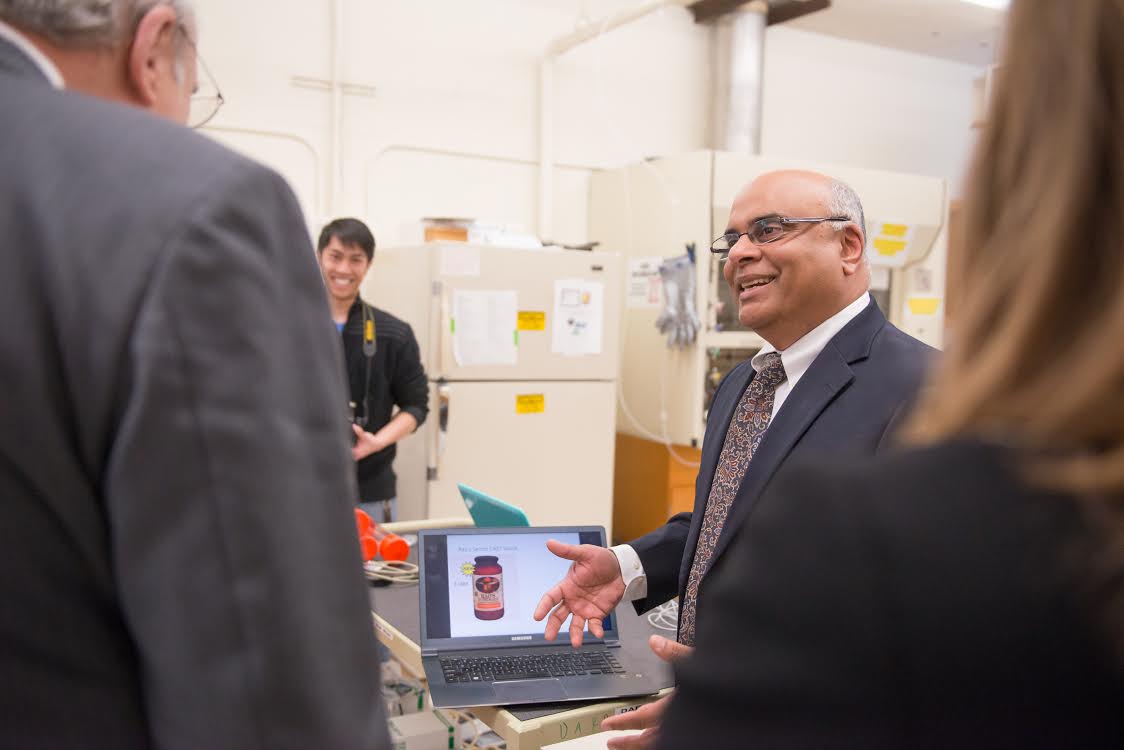In low- and middle-income countries, gaps in healthcare infrastructure and high costs for medical supplies and services can mean high numbers of babies dying in their first week of life. Often, these deaths are due to “extremely preventable causes,” says Govind Rao, professor of chemical and biochemical engineering and director of the Center for Advanced Sensor Technology (CAST) at UMBC.
Rao described for The Hindu, a major Indian newspaper, how he and a team of faculty and student researchers designed an affordable infant incubator that addresses two of the three leading causes of infant death (which include preterm birth, lack of oxygen and sepsis).
“This incubator chamber has been made using cardboard. It’s low-cost, disposable, and possesses heating and cooling functionality,” he explains. The cardboard helps regulate the temperature of the environment, which allows babies to use their metabolic energy for growth rather than regulating their body temperature.
The device is powered by a solar rechargeable battery and can be used without electricity for up to eight hours each day.
“While in urban hi-tech hospitals, the cost of infant care would be in tens of thousands of rupees, in rural India, the medical centers have no facilities—typically a light bulb serves as a warmer,” says Rao.
The incubator design was created and prototype developed over three years with support from the National Collegiate Inventors and Innovators Alliance and the Food and Drug Administration. The next step is for the built-in sensors to be integrated into the device and validated in a field setting.
Read the full article, “For a frugal way to save lives,” in The Hindu Business Line.

